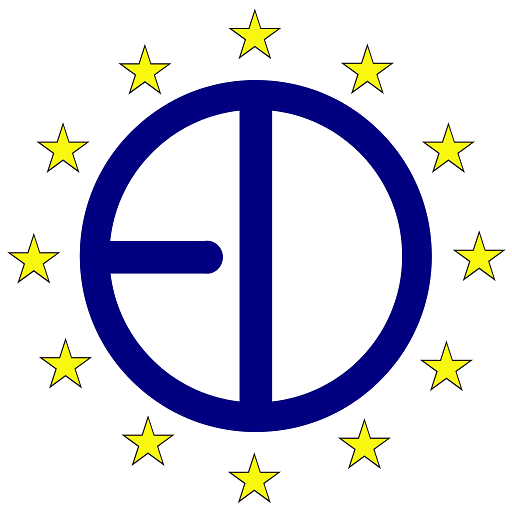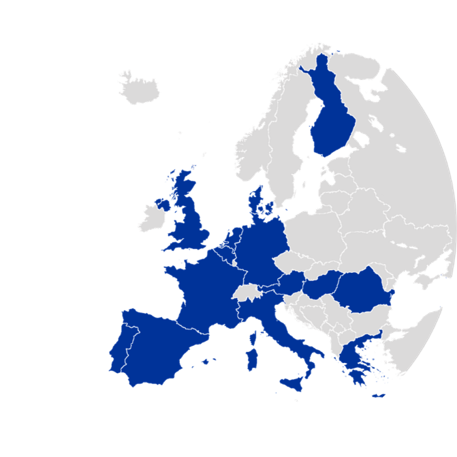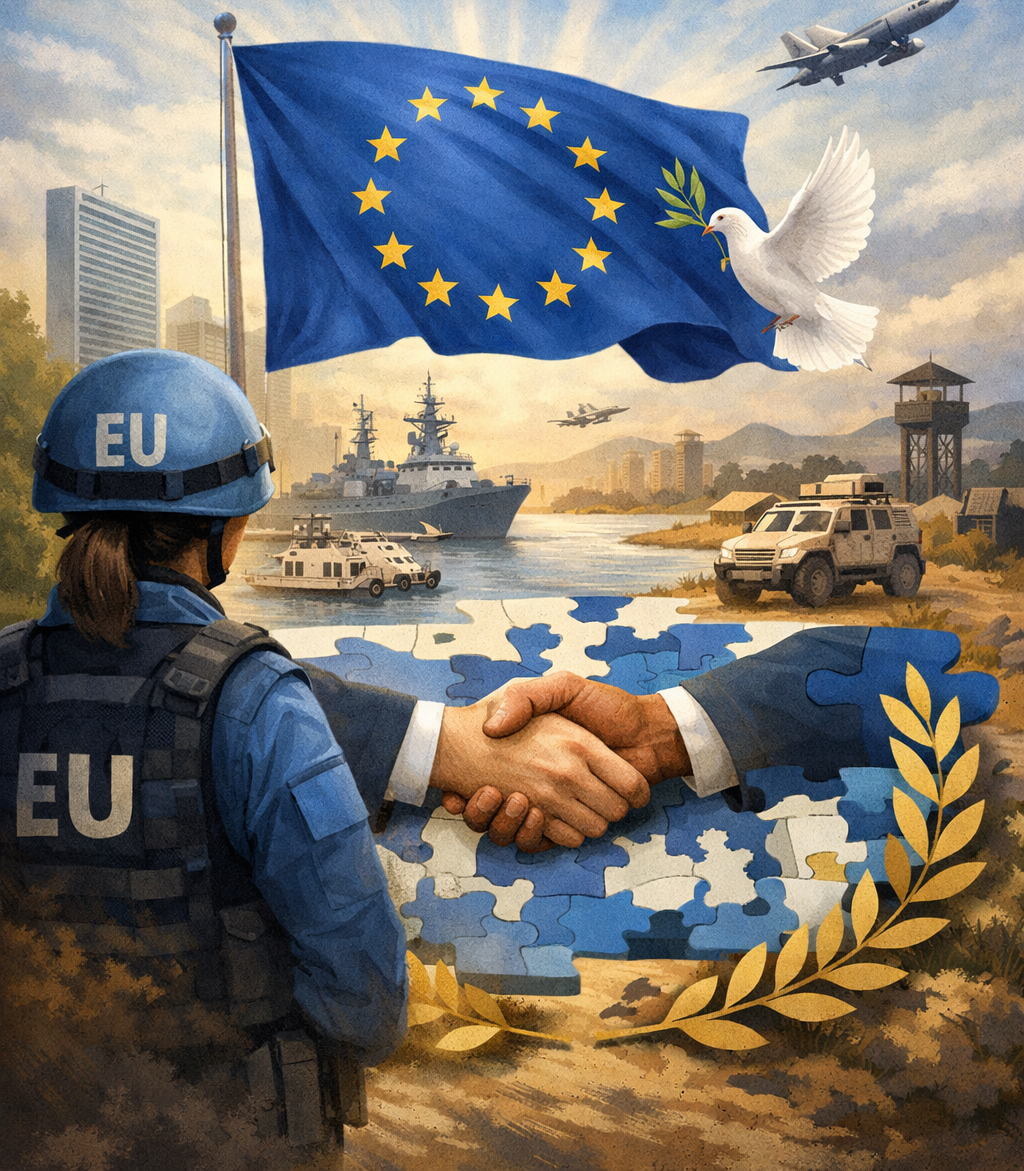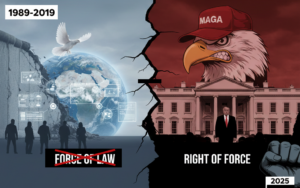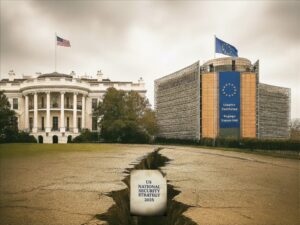Webinar Organized by EuroDefense-Romania, 8 july 2025
This is a very timely Webinar, as the BRICS summit took place in Rio de Janeiro, yesterday and the day before.
I am grateful to EuroDefense-Romania for having undertook to organize it, and I wish to thank the the invitation to make a short presentation on the subject.Turkey,
Prior to look to the outcome of the BRICS summit it is interesting to elaborate on the value of this group. A very first consideration it is that, so far, they are an informal group, not an organization.
They started to exist in 2009 in the aftermath of the world financial crisis. The initial group, considered to be a group of emerging powers, integrated Brazil, Russia, India and China. Later they incorporated Such Africa, in order to include an African State. In 2024 six other nations entered the group Egypt, Ethiopia, Emirates Arab United, Indonesia, Iran and Saudi Arabia, making a total of 11 Member States. With Belarus, Kazakhstan, Cuba, Nigeria and Vietnam as observer partners.
In addition, it has to be said that also Angola, Chile, Malaysia, Nigeria, Thailand, Turkey, Uganda, Uruguay and Uzbekistan attended the recent summit as invited states.
Such a significant number of participating or interested states has to deserve attention. The 5 initial states correspond to 40% of the world population, and to 35% of the global GDP, something that obviously increased with the new members.
There are several essential difficulties when we try to understand this group. They announce as their purpose to react to what they consider to be the unfairness of the world, but the very first difficulty is to understand what they really want.
Are they claiming states, willing to have their share of benefit out of the existing injustices, or are they intending to be normative powers, interested in promoting a more fair ruling and partition of the world?
A second and major difficulty, is their inherent lack of homogeneity, assessed either by political, geopolitical, development, social or any other standard.
Third difficulty, is the real meaning of its current membership. In 2009 it was possible to take China and Russia as emerging powers. But is that still valid today? Or is it more accurate to take China as a superpower, and Russia, as a declining power that has 6000 nuclear warheads?
It is perhaps appropriate to qualify the BRICS as being today a space of Chinese influence, and, to a certain extent, as a group that legitimates, or at least, is not very vocal in condemning the Russian aggression to Ukraine. At the same time, India is not willing to dismantle the existing international system. And Brazil is very complex to understand in all this, eventually because they are somewhat lost in the search for its international position.
In the case of China it is nor excessive to say that they aim to make the BRICS an instrument of their foreign policy.
A few other things seem to be clear:
– even if they are not anti-West, they are a non-Western group , that intend to be non aligned, what is difficult to accept in the cases of China and Russia;
– China and Russia force the geopolitical agenda of the group, whilst the other members are more focussed in the economic dimension;
– all of them react to the announced US tariffs and favor an open international trade;
– they have declared to be interested in replacing the US dollar as an international economic reference currency, but this seems very difficult to achieve;
– they claim to be committed to a positive cooperation with the Global South that they intend to represent; even if the so-called Global South is difficult to identify in its eventual composition, unity and representativeness; in addition, three of the BRICS more relevant members, Russia, China and India, belong to the Northern hemisphere…
Looking to the recent summit the first observation goes to the fact that Xi Jinping, Putin and the Egyptian and Iranian Presidents were not present., although Putin participated online. The case of Xi Jinping deserves special attention since he was present in all precedent summits.
The main conclusions of the summit are summarized in a Joint Declaration titled “Strengthening the cooperation of the Global South for a more inclusive and sustainable Governance.
On this declaration they affirm a commitment to strengthen multilateralism and International Law as established in the UN Charter. It has to be said that it is very difficult to be taken seriously coming from nations such as China and Russia, that have been attacking the UN mutilateral structure, and promoting multipolarism instead of mutilateralism. The reference to International Law is totally contradictory with the Russian behavior in the international system.
They also affirm their commitment to promote a more equitable global order, as well as a reinforcement of cooperation in the fields of politics, security, finance and economics, cultural and interpersonal questions, In short, following the seven parameters considered by the UN to define Human Security.
It is also interesting to note the BRICS commitment to the problems of climate change, and to associate it with the fact that China, Russia and India rank high in the list of the major polluting states.
Without surprise, they claim for a reform of the UN Security Council, something that nations such as Brazil and India have been long claiming, I would say, rightly claiming, although this question is blocked not only by major political obstacles, but also by the more broad question of the reform of the entire UN structure and organization
Three additional points deserve to be mentioned. The first, is their common position against “unjustified and unilateral protectionist measures”. An undisguised reference to Trump tariff’s war, that the US already answered suggesting an aggravation, what Beijing immediately criticized.The second, relates to Artificial Intelligence as a tool for development. The third, is a renewed intent to use local currencies in the intra-BRICS trade.
All in all, I dare to say that the BRICS summit was mostly declaratory, also because they lack instruments to effectively materialize their announced policies. At the same time some contradictions are clear when we compare the group intended policies, with the internacional practice of some of its member states, namely China and Russia.
My third and final conclusion is that a group that associates already 11 member states, 5 observer states, 9 ad-hoc participating sates in the summit, has to be taken seriously and properly followed by the international community.
Luís Valença Pinto
